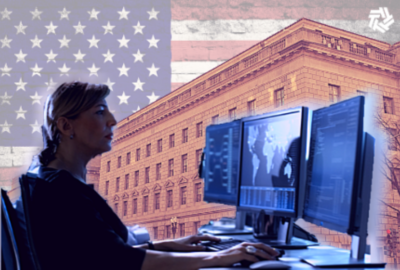Obama calls on Silicon Valley to help thwart cyber attacks
By DARLENE SUPERVILLE and MARTHA MENDOZA Associated Press PALO ALTO, Calif. (AP) — Cyberspace is the new “Wild West,” President Barack Obama said...
By DARLENE SUPERVILLE and MARTHA MENDOZA
Associated Press
PALO ALTO, Calif. (AP) — Cyberspace is the new “Wild West,” President Barack Obama said Friday, with everyone looking to the government to be the sheriff. But he told the private sector it must do more to stop cyber attacks aimed at the U.S. every day.
“Everybody is online, and everybody is vulnerable,” Obama said during a White House cybersecurity summit at Stanford University, just miles from Google, Facebook, Intel and other internet giants.
“The business leaders here want their privacy and their children protected, just like the consumer and privacy advocates here want America to keep leading the world in technology and be safe from attacks,” he said.
Partnering with the federal government is a hard sell in the Silicon Valley. The pace of innovation in California’s tech hub outstrips Beltway bureaucracy, and tech firms chafe at regulations that could limit their reach.
Further, disclosures from former intelligence contractor Edward Snowden exposing sweeping U.S. government surveillance programs have angered many. The programs tapped into data from firms including Google and Yahoo.
“There’s a drastic collective disconnect that I think the administration is working hard to bridge,” said Amy Zegart, co-director of Stanford’s Center for International Security and Cooperation, who met with Obama before his speech.
Obama told more than 1,500 business leaders, students, professors and reporters that information about threats must be shared and responded to quickly. And he signed an executive order aimed at making it easier for private firms to have access to classified information about cyber attacks.
He also stressed there would be oversight to ensure protections for privacy and civil liberties.
The administration wants Congress to replace the existing patchwork of state laws with a national standard giving companies 30 days to notify consumers if their personal information has been compromised.
“The new proposals face significant headwinds, both legislatively from Congress and cooperatively from heavyweights in the tech sector,” said Ben Desjardins, director of security solutions at cybersecurity firm Radware. “Based on the Snowden leaks, these companies believe they’ve already been badly burned by the government, and have very little to gain by publicly backing the president’s proposals.”
Scott Algeier, executive director of the nonprofit Information Sharing and Analysis Center, has been working from the private-sector side to get the government to share information. He said the new executive order seems more like a federal takeover of private-sector information sharing.
“There’s a lot of talk today about ‘public-private partnerships.’ But there isn’t a partnership here,” he said.
Nonetheless, there was agreement at the daylong summit among White House officials and leaders from a broad business sector — including utilities, health care, insurance and finance — that the threat is getting worse, and no single institution can take it on.
“Right now there are people trying to hack into all our companies, and one of those idiots might succeed. That’s the fearful part,” said MasterCard CEO Ajay Banga.
Numerous companies, ranging from mass retailers like Target and Home Depot to Sony Pictures Entertainment and health insurer Anthem, have suffered costly and embarrassing data breaches in recent months. The Twitter feed of U.S. Central Command, which oversees military operations in the volatile Middle East, was hacked as well, while the White House detected “activity of concern” in October on its unclassified computer network used by White House staffers.
Those breaches — which the Identity Theft Resource Center said left 85 million records exposed last year — are moving the cybersecurity discussion from tech geeks to policy wonks.
“We must get this right. History has shown us that sacrificing our right to privacy can have dire consequences,” said Apple CEO Tim Cook, who described the online world as being in a pivotal moment. “If those of us in positions of responsibility fail to do everything in our power to protect the right of privacy, we risk something far more valuable than money. We risk our way of life.”
While the focus of the White House visit to Stanford University was cybersecurity, the cadre of officials and business leaders who traveled from an East Coast gripped in a brutally cold winter into a wave of warm, sunny skies couldn’t help but comment about the weather.
“I’ve got to admit, I kind of want to go here,” Obama said, drawing cheers. “I was trying to figure out, why it is that a really nice place like this is wasted on young people who don’t fully appreciate what you got? It’s really nice, and everybody here is so friendly and smart, and it’s beautiful, and what’s there not to like?”
___
Follow the AP writers @mendozamartha and @dsupervilleap
Copyright 2015 The Associated Press. All rights reserved. This material may not be published, broadcast, rewritten or redistributed.
Copyright © 2025 The Associated Press. All rights reserved. This website is not intended for users located within the European Economic Area.






